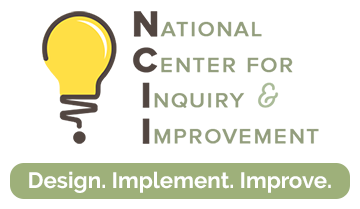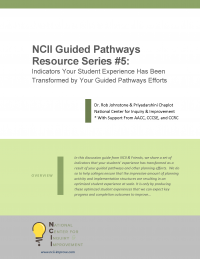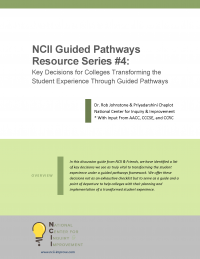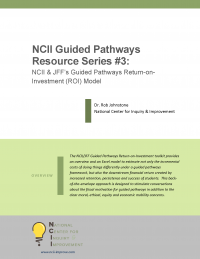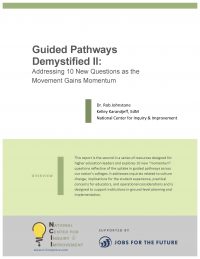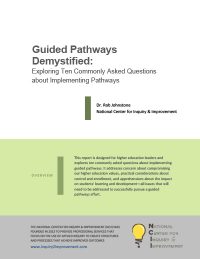NCII GPRS 5
Indicators That Your Students’ Experience Has Been Transformed By Your Guided Pathways Reforms (Fall 2019)
In working with hundreds of colleges around the country, we’ve observed a lot of exploration and activity around guided pathways — and we’ve also observed that this focus on the exploration activity has in some cases unintnetionally taken the focus off understanding and optimizing the student experience. For outcomes to markedly improve within a guided pathways context, the student experience itself will have to evolve significantly. To that end, we think that colleges might benefit from a centering (or re-centering) of their guided pathways work on improving the student experience as they move into and through the college. To ensure that guided pathways efforts are student-centered, NCII and its partners offer a set of student experience research questions. The intent is to focus colleges on quantitative and qualitative measures that would demonstrate the impact of guided pathways design work on the student experience.
